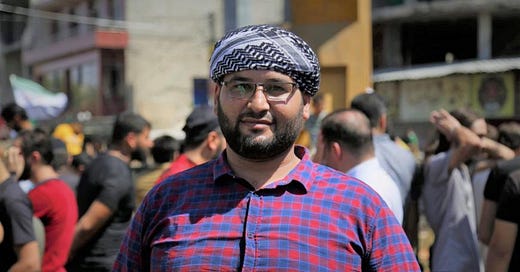This is the first of several posts covering the recent HTS invasion of Afrin, its causes, and what it means going forward.
On Friday, October 7th, Syrian media activist Muhammed Abu Ghannoum and his pregnant wife were gunned down on the streets of al-Bab. The assailants fired on their victims from a white sedan, later seen on CCTV footage escaping to the neighboring town of Biza‘a.
The following day, thousands of people attended Abu Ghannoum's funeral at al-Bab’s Great Mosque, which was accompanied with a general strike and large scale protests throughout the city demanding accountability for the double murder and the city’s worsening security situation.
A local activist organization involved in the protests known as “The Revolutionary Street in the City of al-Bab” soon published a series of demands. Holding Turkey responsible for the deteriorating state of the security situation in northern Syria, they called for the immediate resignation of the two main officials in charge of al-Bab’s security, Youssef al-Shibli and Khalid al-Ahmed, for Abu Ghannoum and his wife’s assassins to be brought to justice, and the development of a security plan involving the disarming of SNA factions present within the city. Demonstrations continued for the next several days, oriented around a mourning tent was set up in al-Bab’s Center Roundabout, renamed by protestors “al-Shahid Abu Ghannoum Square.”
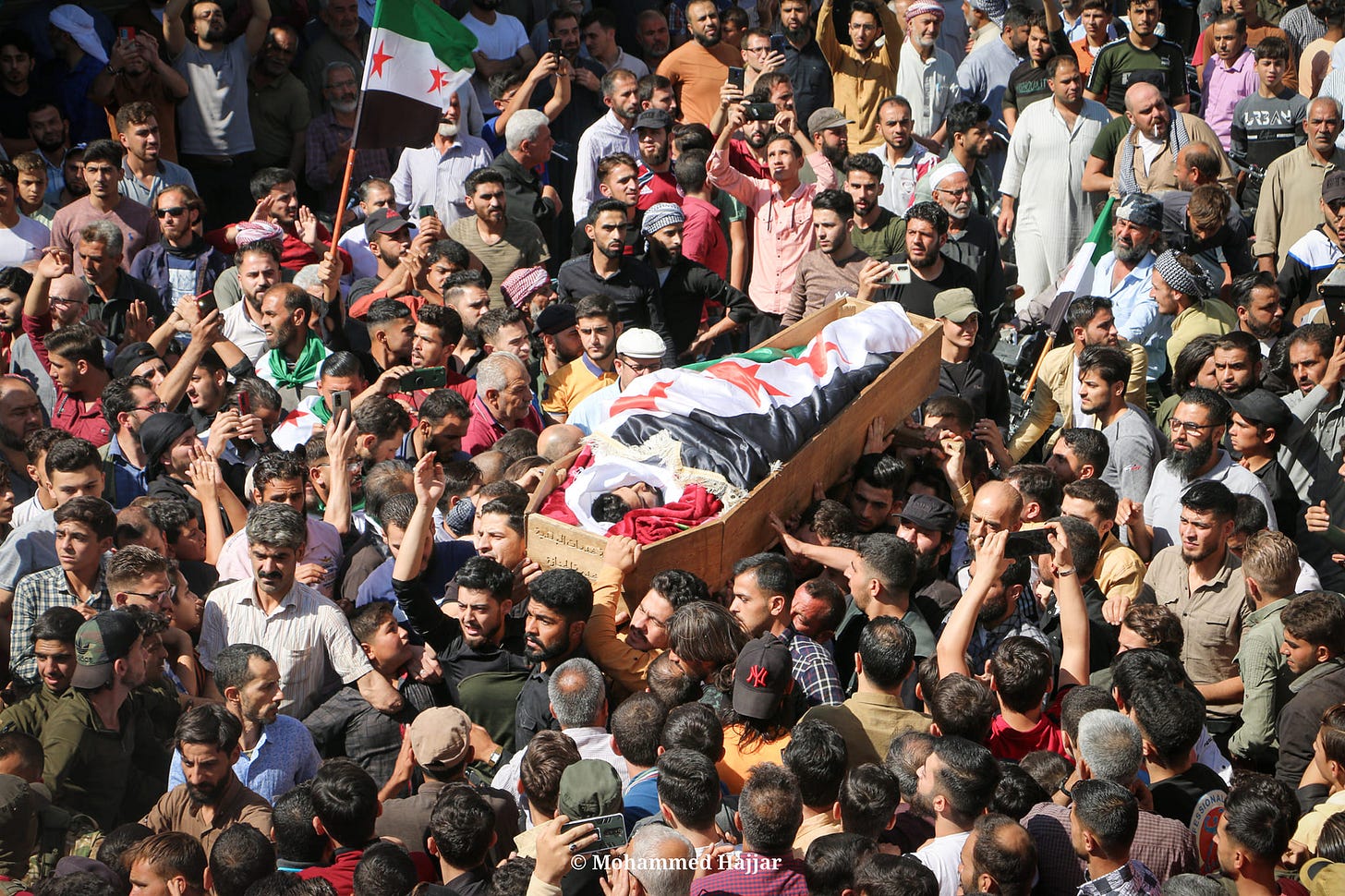
On Monday October 10th, investigators from the SNA’s Third Legion and Military Police identified the killers. This was achieved through the analysis of CCTV footage taken by “more than 200 surveillance cameras” around the city, showing Abu Ghannoum and his wife being stalked by the assassins earlier that day.

As the Third Legion attempted to detain two of the alleged perpetrators, identified at this point as members of Furqat al-Hamzah's local security detachment based in the nearby 'Agriculture School', clashes broke out. One cell member was successfully arrested while the other was hospitalized after sustaining injuries during the fighting. A subsequent altercation occurred at al-Bab hospital, as members of Furqat al-Hamzah attempting to break the injured assassin out were confronted by protestors, one of whom was almost kidnapped by the group. A third member of the cell was later arrested that day as well.

According to confessions given by the detained Furqat al-Hamzah commander Abu Sultan al-Deiri ordered the assassination. Reporting soon identified Abu Sultan as a high ranking security officer within the faction and who’s appeared in a number of photographs meeting with Hamzah faction leader Saif Abu Bakr. Soon after this new information was publicized by the Third Legion, Furqat al-Hamzah turnedAbu Sultan over to the al-Bab Military Police.
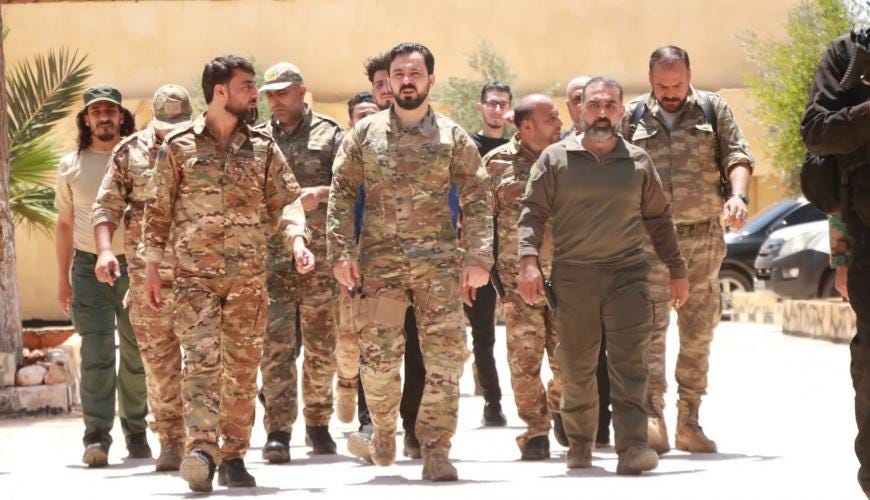
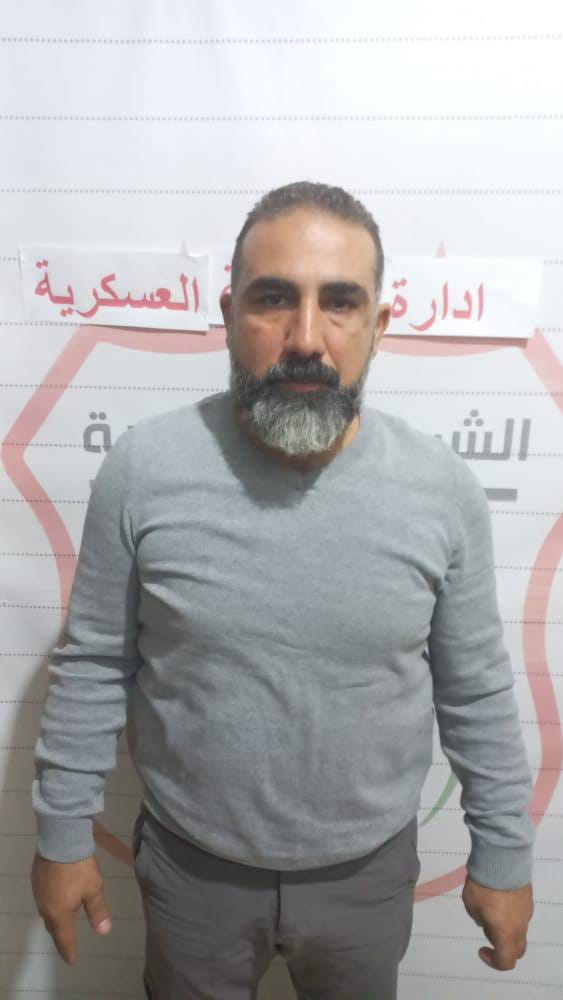
A statement published by Hamzah that day admitted that nameless members of the group had been arrested and charged with the murder of Abu Ghannoum and his wife. According to Hamzah they were members of a brigade which had only joined the faction recently. There does appear to be truth to this. Abu Sultan al-Deiri seems to have been affiliated with Furqat al-Sultan Murad during 2018’s Operation Olive Branch, while some reports say he was later a member of Ahrar al-Sharqiyah. Another member of the cell, Akram al-‘Akal (‘Abu Haitham’), was reportedly at one point a member of Ahrar al-Sharqiyah as well, and has additionally been accused of prior Islamic State affiliation.

It appears that the reason why Abu Sultan had Abu Ghannoum (and his wife) killed was anger over the latter’s work reporting on crimes committed by prominent Furqat al-Hamza figures. Abu Sultan’s grudge dates back to the previous month when Abu Ghannoum had spoke up to the press about an incident involving al-Hamzah commander Muhammed al-Kadri.
Abu Ghannoum was quoted in an article by al-Monitor, among other places, in its coverage of the case:
Muhammad Ghanoum, a journalist based in al-Bab, told Al-Monitor, “An armed group led by Abu Abdo al-Qadri, a prominent leader of the FSA’s Hamza Division, stormed Sept. 13 the house of Sohaib Abu Kasha, an officer of the police’s narcotics division of al-Bab city.”
He said, “The group brutally stormed the house before searching it and breaking some furniture, terrifying children and women who were inside the house at the time of the attack. One of the aggressors confiscated the cellphone of Abu Kasha’s wife and went through it. Before they left the house, another one of the aggressors told the wife that they broke into the house in retaliation for her husband confiscating a shipment of narcotics.”
Ghanoum added, “The aggressors took advantage of the absence of Abu Kasha who was at work on the outskirts of the city of al-Bab [on the day of the attack]. All those who stormed the house were drunk, and apparently some of them do drugs.”
At the time Abu Ghannoum was assaulted by Abu Sultan and his men who additionally threatened to kill him for publicizing al-Kadri’s role. Afterwards, Abu Sultan reached out and pursued reconciliation with Abu Ghannoum, presumably to counter negative PR. Under a month later he would make good on the earlier death threat. Several members of the assassination cell were in fact affiliated with al-Kadri’s group within Furqat al-Hamzah.
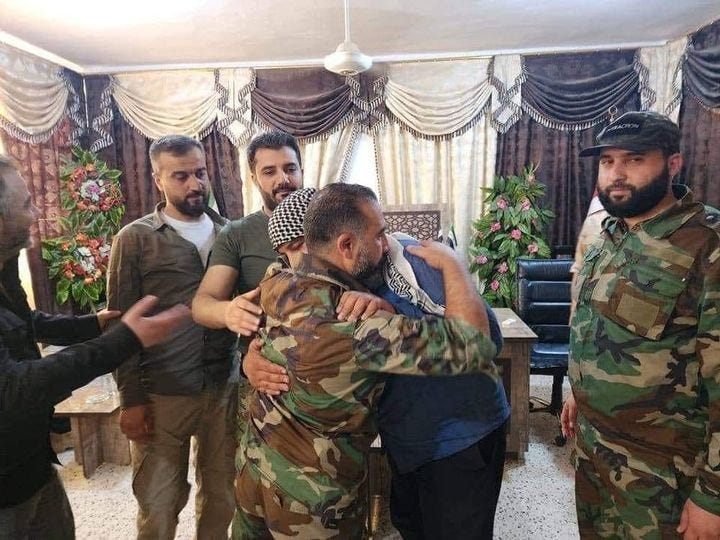


After the detainment of Abu Sultan al-Deiri, the Third Legion mobilized its forces in al-Bab and moved to push Furqat al-Hamzah out of the city entirely. Several headquarters of the group were seized including the ‘Agricultural School’ security facility run by Abu Sultan. In response, Furqat al-Hamzah launched an attack on al-Bab city from the neighboring town of al-Biza‘a – one of their strongholds in the Euphrates Shield region. From here the conflict escalated across northern Aleppo, soon drawing in Hay’at Tahrir al-Sham….
SyriaTV’s profile of Abu Sultan al-Deiri can be read here

